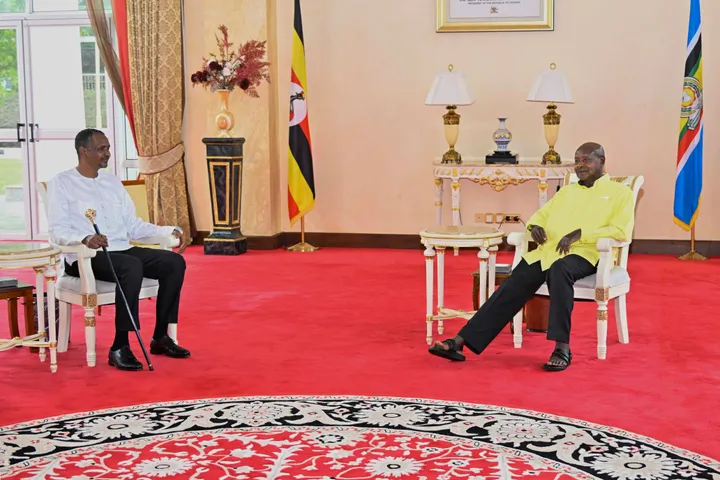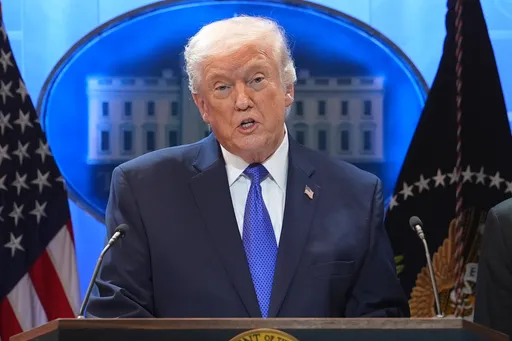Former South African ambassador to the US, Ebrahim Rasool is all too aware of the very serious ramifications of the US’s decision to relocate its embassy from Tel Aviv to Jerusalem. Rasool also recalls his “fresh memories” of South Africa’s apartheid when he sees Israel’s violence against Palestinians.
In June 1987, Rasool spent 13 months in prison for opposing the apartheid regime, half of which was in solitary confinement. During that time he met the now universally admired Nelson Mandela, who would go on to become South Africa’s first black president. But the journey from jailed political activist to decorated statesman began after a violent confrontation with South Africa’s apartheid regime.
“I really had no idea where I was going,” Rasool says, “until after I tasted my first tear gas, saw my first rubber bullet and fled my first whop from the police when I entered high school in 1976.”
This baptism of fire has shaped the way the ambassador views the Israel-Palestine conflict. He knows what it's like to be on the receiving end.
Ebrahim Rasool, now 55, speaks to TRT World.
What do you make of events in Palestine right now?
Ebrahim Rasool: We are facing a very callous situation in Israel at this moment. As we commemorate 70 years of the Nakba, we have this very deliberate and provocative opening of the American embassy in Jerusalem. And the juxtaposition of those two events expresses the degree of callousness. This is happening alongside the massacre of innocent people who have the right to defend themselves.
If the ability to defend yourself is deemed a threat to national security, which is how the Israelis have framed the Palestinian protests, then I wonder what would have happened if we didn’t have Nelson Mandela or an African National Congress in South Africa to defend us. They upheld our right to a sovereign state; our right to be treated as humans; our right to freedom and our right to determine our own destiny. Palestinians also have this right.
The violence has now gotten out of control, and many people have been killed and injured by Israeli authorities. Why is Israel enjoying such impunity?
ER: I believe their impunity is directly related to the unconditional support Israel knows it will receive from the United States. Furthermore, whether it is Europe, or South Africa or any other place, these countries have no bearing on the objectives and behaviour of Israel. And because of that the prospect of a two-state solution is diminishing on the horizon. So, I’m very sad to say I believe this impunity will lead to a single state and it doesn’t appear to me that it will be a Palestinian state. It will be an Israeli state with concentration camps where Palestinians are confined.
Following the overthrow of the apartheid regime in South Africa, the government did a U-turn on Israel. What was once a warm relationship, became tense. Why do South Africans feel so strongly about this conflict?
ER: Our country was one of the last countries to have been liberated from colonial occupation and certainly our memories are very fresh. I remember coming home and having our family’s furniture on the pavement because our neighbourhood had been declared white. People of colour had to move and find other places to live with no consideration for us. I saw the sadness in the eyes of my parents having to pack up and go. We also confronted live ammunition from the apartheid government and only had stones to defend ourselves.
Today I can only imagine what it means to be shot at with live ammunition by soldiers and armed police. Because of that experience, I feel empathy with the problems the Israeli government is creating for Palestinians today. Ultimately though, we remember the words of Nelson Mandela, when we look at Palestine and he said we can never truly be free until the Palestinians are free.
South Africa recalled its ambassador to Israel. Why is it so deeply invested in a conflict which on the face of it has little to do with South Africa, especially considering the political risk of a confrontation with the US and Israel?
ER: I think that South Africa recalling its ambassador is a very difficult and risky move for our country. We remember the words of President Trump when he said whoever doesn’t vote with the US, whoever doesn’t support what the US says must deal with the danger of losing aid and trade. And we’re very exposed with the African Growth and Opportunities Act, as well as with the HIV/AIDS funding we receive from the US. Our national interests were really at stake here. But this is about more than South Africa’s national interests, this is about South Africa’s national values.
The government had to weigh up our values of human rights, of freedom, democracy and self-determination against a valuable trade regime, as well as aid packages from the US. And I think we made a correct decision by choosing on the basis of our values. Hopefully the spirit of that decision will become infectious, leading other countries to stand by their principles. To not stand by and be bought into silence by the actions of bullies at both the regional and international level.
This is a call to courage to other nations to find their independent voices, to stand up for what is just in the world, and support the important human values we share with the Palestinians.
Do you have hope that this issue can be solved in an equitable way, that guarantees Palestinians their rights?
ER: I witnessed the first meeting after Nelson Mandela’s release with Yasser Arafat in Cairo, Egypt and we had hope. We had hope that if South Africa can reach a negotiated settlement, then maybe the same is possible for the Palestinians. But clearly the Palestinians are dealing with an Israeli state that has an extremist in the government leading it. So, to a large extent I think there is no need for peace if you are interested in creating a single Israeli state with total Palestinian exclusion.
What will it take for Palestinians to get justice?
ER: I think we will only be able to get justice in the world if we are able to show both Israel and the US that whatever they do, they will not get blank cheques from us. We will not give them a free pass. And only when the countries of the world stand together do we make it impossible for anyone to suffer the withdrawal of trade, for anyone to suffer the withdrawal of aid. We need to stand together at this moment because we might be the spectators in this game today, but tomorrow we may well be the victims ourselves.























